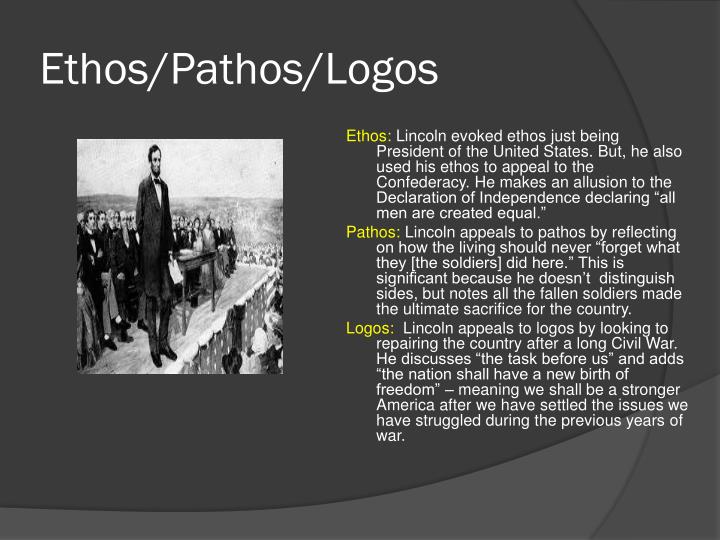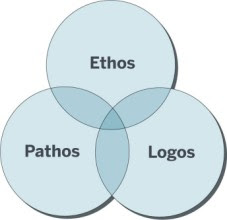
This gave his speech a great deal of authority and made it more persuasive.Įxamples of Ethos in “I Have a Dream” Speech King was both an expert on civil rights and someone who was highly respected by the African American community. To establish ethos, a speaker must be seen as an expert in the topic at hand or be someone who is trusted by the audience. EthosĮthos is the credibility of the speaker. To truly understand the impact of this speech, we first need to understand the meanings behind ethos (expertise), pathos (emotional appeal), and logos (logic).
#Ethos pathos and logos skin
“I Have a Dream that my four little children will one day live in a nation where they will not be judged by the color of their skin but by the content of their character.”

“I Have a Dream that one day right there in Alabama little black boys and little black girls will be able to join hands with little white boys and white girls as sisters and brothers.” The speech text included repetition of the line "I Have a Dream." such as: Centering around the dreams that King had, having grown up during segregated times of black and white folk. during the march on Washington for jobs and freedom.

The speech was delivered on August 28th, 1963 at the Lincoln Memorial in Washington D.C. So with that, it is worth exploring the ethos (expertise), pathos (emotional appeal), and logos (logic) of the speech to break it down into some core elements. By doing so, he is able to make a powerful argument for civil rights. In it, King uses rhetoric to appeal to his audience's emotions, values, and logic. Martin Luther King Jr.'s "I Have a Dream" is one of the most famous quoted speeches in history. Students may then assess the efficacy of these methods in a piece of writing, speech, or letter. Teaching the Aristotelian concepts of Ethos, Pathos, and Logos as ways to enhance students' comprehension of good arguments is a fantastic approach to cultivating their understanding of effective arguments. This necessitates a basic understanding of rhetoric. The ability to deconstruct and validate, or debunk, opposing viewpoints is essential for strong persuasive writing. They also need students to employ effective argumentative writing methods for them to defend a position or perspective. This study complements discourse analyses of social/environmental reporting by providing a finer-grained picture of how language use influences how social actors think, feel and act.The ELA Common Core Standards, in high school, require students to improve their formal writing abilities by producing well-thought-out essays and arguments that are appropriately structured. We argue that persuasive strategies facilitate the social effects of ‘middle ground’ discourse by making business-centred understandings of social responsibility and sustainability appear reasonable and business organisations appear trustworthy in their pursuit of sustainable development.

We study the social/environmental reports produced by three New Zealand companies during a wider discursive struggle over the ‘proper’ role of business in society. Drawing on insights from impression management and communication studies, and Kenneth Burke's understanding that rhetoric is all pervasive, we focus on Aristotle's rhetorical ‘proofs’: ethos (credibility), logos (reason), and pathos (emotion). We demonstrate how persuasive strategies activate the ‘middle ground’ discourses of responsible and sustainable business constructed in three social/environmental reports.


 0 kommentar(er)
0 kommentar(er)
